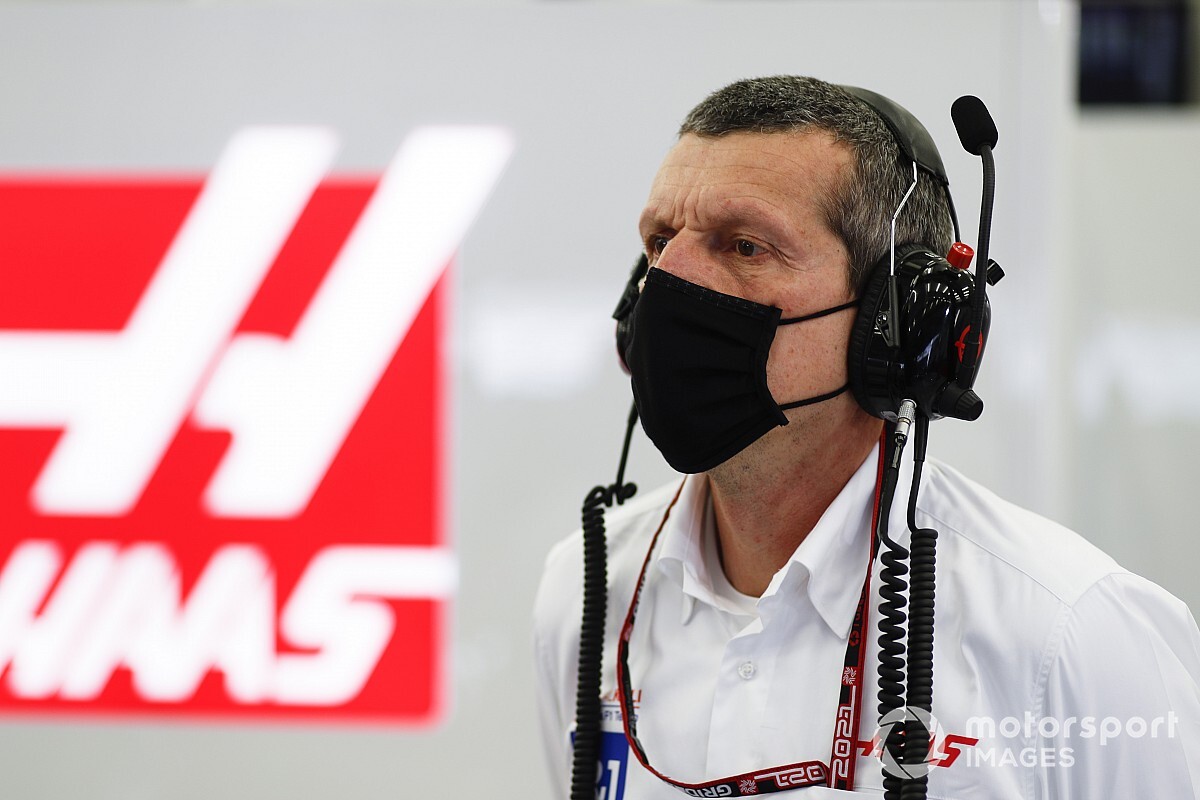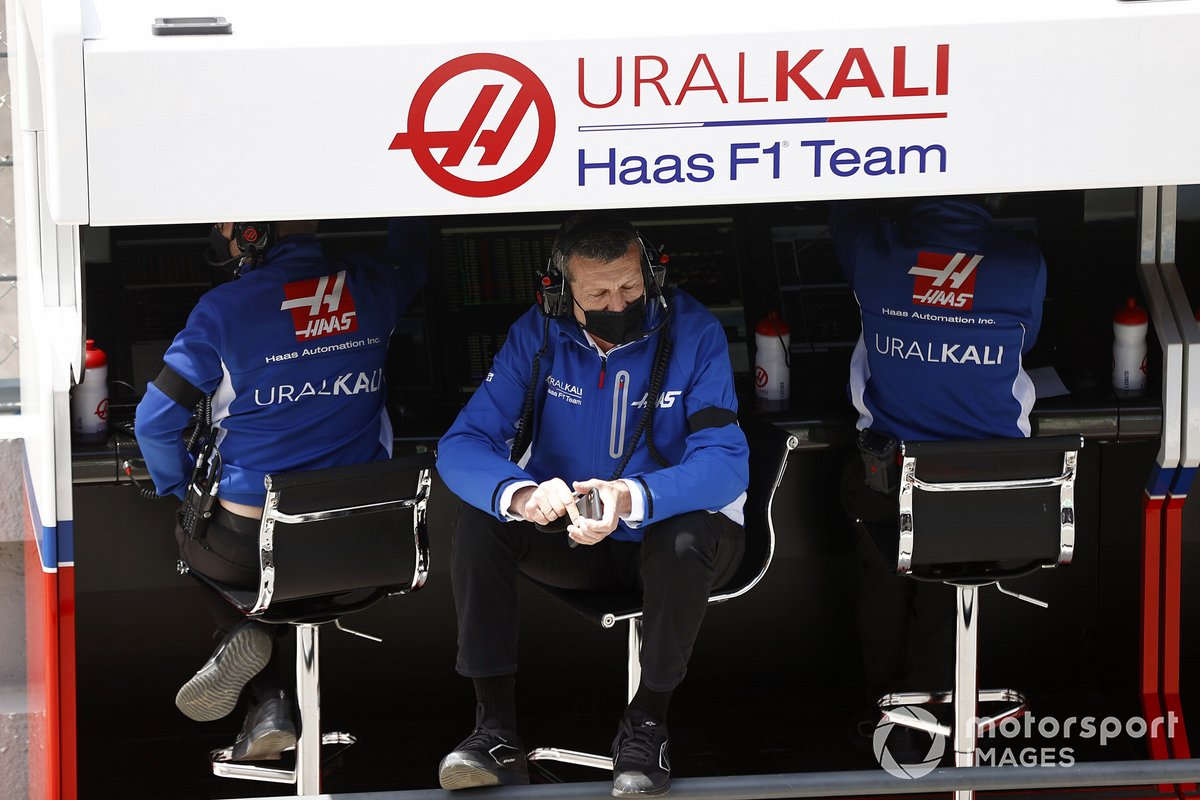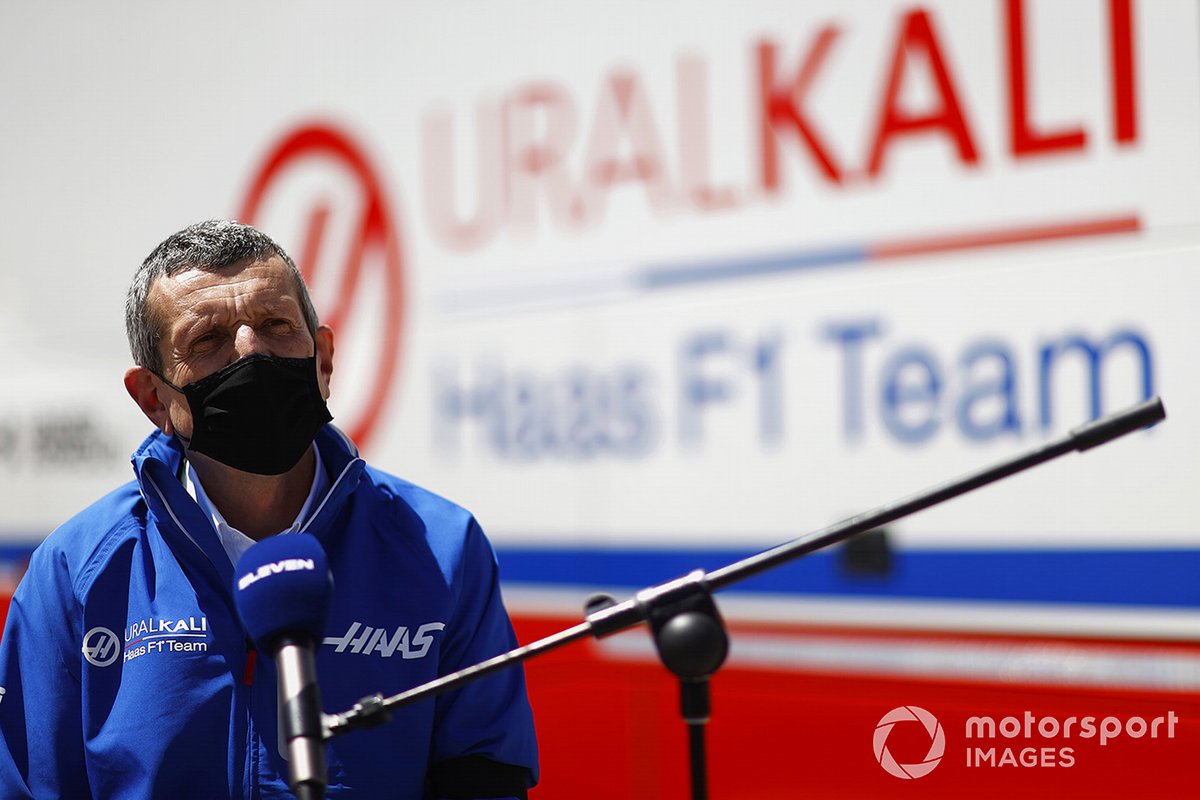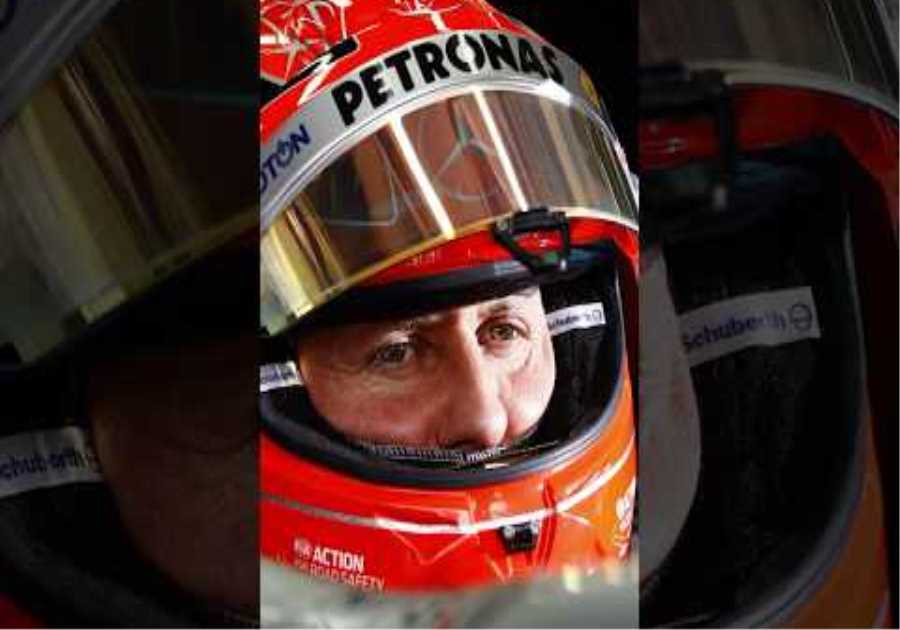
Gunther Steiner has headed the Haas F1 Team since joining the championship in 2016 and has been in motorsport for over 35 years.
But what does it take to become a team boss?
We spoke to Steiner to find out what qualifications you need, what skills you should have and what else you need to know.
What is a team boss?
I think you have to see it like a CEO in a company – you lead the team. Formula 1 has many elements, it’s a great mix of different things. It’s technical, it’s marketing, it’s athletic, there are a lot of things, and all you have to do is adjust to what you’re doing, try to be your best and make the right decisions.
What does a team boss do?
Basically we run a company, we are a small team, but the bigger teams are companies of 500 people, we are about 200. It’s nothing else than that, and then we race on the weekends. Instead of getting your quarterly board review, you have it every week, after which you will be assessed. You are as good as your last race, just as a CEO is as good as his last quarter of the fiscal year. That’s a very short answer to what it is.
How do you become a team boss?
I don’t know how I did it, you know! Everyone has a different story. I can tell you my story, but everyone has a different story. I started motorsport 36 years ago and only one thing led to another. You move up.
To get into the position of Haas Team Principal, I tried seven years ago to find an investor for a new team, find an investor, and then become team principal. It might sound too simple, but I think of course you have to know the sport, you have to know the people, you have to know the environment.
As I said, everyone has a different story when they became team boss, it’s not like going to school like a normal job and then making a career – you work somewhere and then you get up, things like that. I think everyone here has their own story to tell. There is no one way to become a team leader. The prerequisite is a high level of willingness to work and a great interest in motorsport. I think it’s also very demanding, you have to work a lot, it’s a 24-hour job, to be honest, seven days a week.
I started out in rallying as a mechanic in 1986. I left my home country, moved to Belgium from Italy because I liked racing cars, and that was a starting point for me. From then on, I held various technical positions. I was in Belgium for two years, then three years for a team in Italy, then six years for another team in Italy. In 1996 I moved to the UK and started a custom team for Prodrive which is still a big company. Then I became the project manager for the Ford Focus rally car, and then rose to the position of technical director.
Then I got a call from Niki Lauda when he was team principal of the Jaguar Formula 1 team, and that’s where my F1 career began. I was General Manager at Jaguar, then a year in the DTM for General Motors Opel, then I switched to the Red Bull F1 team, which became Jaguar, and was technical director there. I moved to the US for Red Bull to open their NASCAR team in the US and stayed there.
Niki Lauda Jaguar Team Principal with Gunther Steiner Jaguar Technical Director, 2002 United States Grand Prix
Photo by: Sutton Images / Motorsport Images
I spent five years building my own company, which I still have, a composites company, and then I had a great idea – I don’t know how great it was – to have an American F1 team. I wrote a business plan and found an investor, ran around and found investors, and I’ve been with Haas for seven years now.
What experience do you need?
I think the days were different [when I was starting my career], 36 years ago it was a different time, you can’t compare it with today. I wouldn’t recommend anyone doing what I’ve done. If someone wants to get into motorsport, they graduate. If you want to do technical things, it is a degree with a focus on engineering and then a specialization in motorsport, that helps of course. You have to be good too, you are starting to have it not just as a piece of paper. If you’re interested, there are lawyers who work in motorsport, there are marketing people, just do your studies.
I think the first thing is always when you’re young, you have a lot of energy, you start in a small team in motorsport because you learn a lot, because you have to do a lot, because the small teams – not even Formula 3, yet smaller series, Formula 4, private touring car teams and the like – this is a good practice area to get a good basis and a good knowledge of how it works, so that you get an understanding of the climb. When you jump straight into Formula 1 you think that this is the reality, but Formula 1 is very specific to a job. If you have a broader picture, I always think it’s much better for your career. Knowing what’s going on in the big picture can move you forward, but if you only specialize in one thing you’re kind of trapped – either that works or nothing works.
I always find it to be to start on the side, even to work as an engineer for a small racing team or something, it helps a lot to learn and to get on in life.
What other skills are useful?
I think you have to make decisions quickly in Formula 1 because it’s a very fast-paced business sport, so you have to be sharp and develop that by working in motorsport because if you know what you’re dealing with, you can you make decisions there because you have seen the situation beforehand and are qualified.
Obviously communication – you deal with a lot of people from different countries, knowing the culture, knowing languages helps a lot too. Just know these things and cultures so that you can gauge how other people think, because not everyone thinks the same way. It helps you find your way around and move forward in your career and also be part of something, but that’s not just in F1, it’s general – if you want to be part of an industry you need good social skills too.
For that you have to have a lot of passion for motorsport. This is not a job. If you are doing it for the money there are many jobs that will make you more that you don’t have to work so hard for. So it has to be a passion, you have to be interested and really like it, otherwise there is no point, you would come here and go again in a couple of years.

Gunther Steiner, Team Principal, Haas F1, on the pit wall
Photo by: Andy Hone / Motorsport Images
What’s the best career advice you have received or can give?
Just work hard. Always be correct and always fair. Nothing else. A good work ethic and fairness. Do not lie. Just go on.
How can I gain work experience as a team leader?
As I said, as a team principal there are so many different careers here. Some people have no technical background, some have a little, some are team owners from smaller racing series. Hence, it is very difficult to say what to specialize in. There are only 10 team bosses in the world, they are not many. I think a lot is in the right place at the right time.
Anything you do, if you do it passionately and rightly, you have a chance to get there.
What does a normal working day look like for you?
We have three different places we work from – one in Italy, one in the US and one in England – so my office would be in the States. But I usually travel back to the States on a Monday, I’m traveling somewhere, like staying in Europe for the summer. But now with COVID I base myself in the place that I have in Italy, so I work from there. It’s not like going to the office, you’re always in the office. I also have my office at the airport, I work from my laptop – where my laptop is, my office is. We’re everywhere, but I work like everyone else. On Mondays you do a normal job and on the race weekends you go to the racetrack. You arrive there on Thursday or Wednesday evening and then do media stuff.
What does a racing day look like for you?
A normal racing day – it’s not yet normal with COVID – but on a normal racing day you would do your meetings in the morning, your briefings, you attend, you don’t do them, just listen to what about the drivers in the engineers discussed. Then you do some press stuff, different things that are lined up. Then when you have a good car you look forward to the race very much, when you have a bad car you can’t wait for it to be over. This is how the race day goes.
Generally, you do this job to race and the race is on Sunday. You look forward to it. I don’t do much during the race. I talk to the chief race engineer a little, but he’s in full control. I always feel like if I throw in during the race, I’ve hired the wrong people. If I have to compete in the race, this job is a job in itself – a team boss can’t do that in my opinion. You know, you know what is happening, and when they ask you, you usually know what is happening, but I am not bothering them. They do a good job and they do the hard work too and it wouldn’t be right for me to come in at the last minute to do what I want to do. I would have the wrong people if I had to correct them. They can make mistakes and if I tell them something I see they would take my advice, but I don’t get involved in the race.

Gunther Steiner, Team Principal, Haas F1 speaks to the media
Photo by: Andy Hone / Motorsport Images
What else should people know about the life of a team boss?
It’s pretty stressful at times. I’m not complaining about the job, it’s a good job because if you like motorsport you want to be one at some point. But it’s a lot of hard work. You need to have your family around and they need to understand because when you’re having problems from more than one location – there are enough problems running an F1 team that you don’t need outside distractions. It’s a tough job, but it’s a very fulfilling job. It’s not very fulfilling right now because we don’t fight a lot, but the time will come again and I’m sure we are working towards that. You can never give up when you are down, so you don’t come down, but how you get up again. That’s how I see it.
This article was produced in collaboration with Motorsport Jobs. Find the latest jobs in motorsport, as well as jobs with the Haas F1 Team, on the Motorsport Jobs website.

The post How do you become an F1 team boss first appeared on monter-une-startup.






